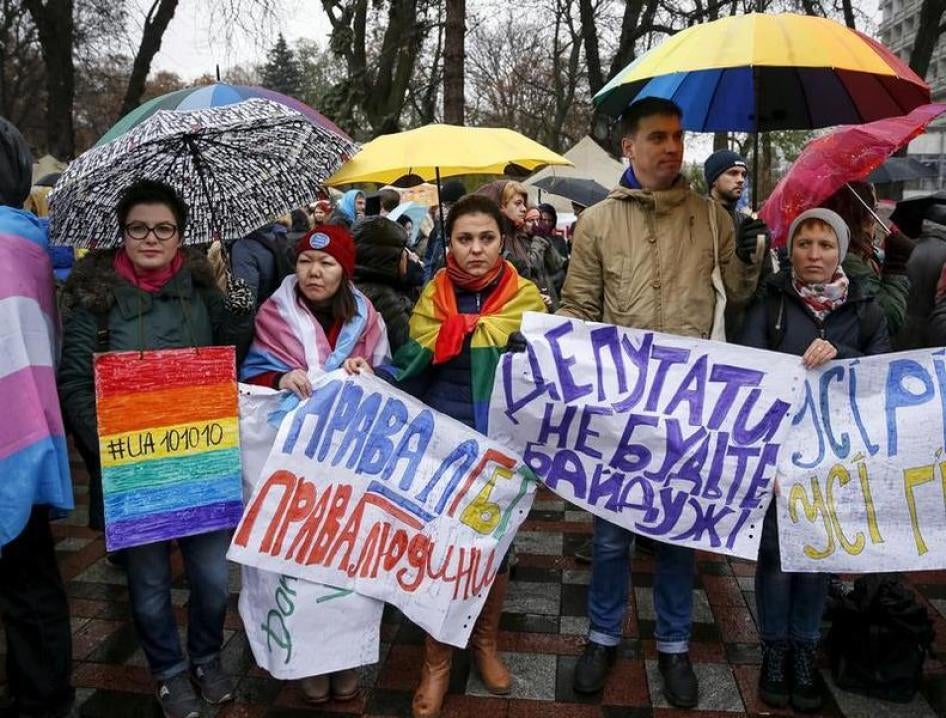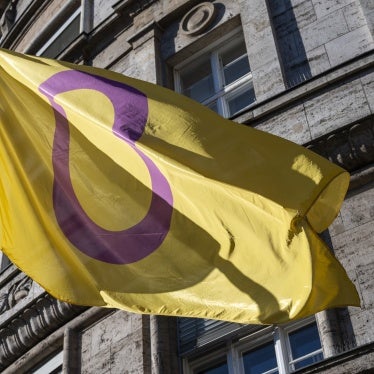In the past, transgender people in Ukraine who wanted to have their gender legally recognized faced a degrading, years-long obstacle course of psychiatric observation, sterilization, and other horrors. But change is on the way, as the government introduces new rules that stem some of the worst abuses of the old system.
Activists in Ukraine are welcoming substantial revisions to a procedure to allow for legal gender recognition for transgender people. While falling short of good models in countries such as Argentina and Malta, the changes are a clear step forward from a truly archaic system that was the subject of a Human Rights Watch complaint to the Special Rapporteur on torture.
The previous rules outlined in Order No. 60, of the Ministry of Health of Ukraine, required transgender people to undergo extensive psychiatric observation and irreversible sterilization, to obtain a divorce, and submit to gender reassignment surgery: all just to get their documents aligned with their gender. Failure to complete this procedure and obtain a legal ID that matched their gender meant a life circumscribed by a legal identity at odds with an innate identity. It also resulted in discrimination and endless obstacles in undertaking simple life tasks such as trying to open a bank account or rent an apartment as a transgender person with only an ID that does not match their gender identity.
The new procedures cut back on a number of these unnecessary processes, changes that are consistent with recent small steps towards recognition of transgender rights and protection from LGBT discrimination in the work place. But the procedure still falls far short. The new rules have done away with mandatory in-patient psychiatric evaluations, coerced sterilization, and mandatory appearance before the State Evaluation Commission, which was meant to confirm the diagnosis of “transsexualism.”
Transgender people in Ukraine, however, will still be required to jump through onerous hoops to obtain legal documents aligned with their gender. For example, undergo outpatient psychiatric examinations that could easily transition to inpatient hospitalization. The ominous phrase “irreversible medical intervention” remains, but activists are optimistic that it will be removed before the revisions are finalized.
That these changes are a significant improvement underscores how bad Order No. 60 was. Legal gender recognition should be entirely separate from medical procedures. Governments, including Ukraine, should work towards a simple administrative procedure that allows individuals without any undue burden and in a dignified manner to obtain documents congruent with their gender identity.










